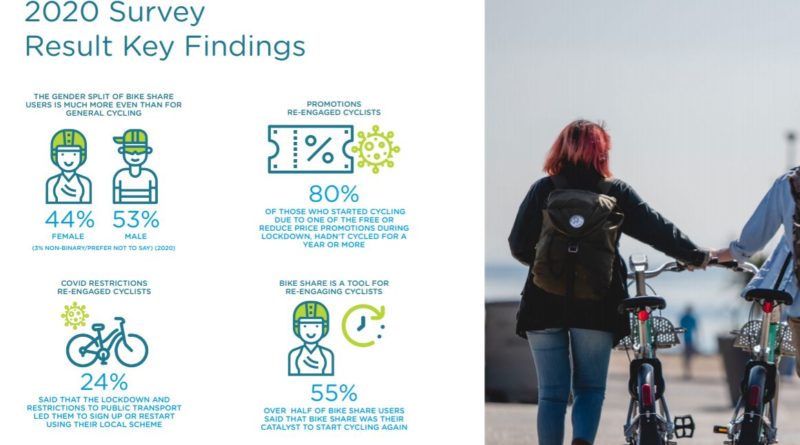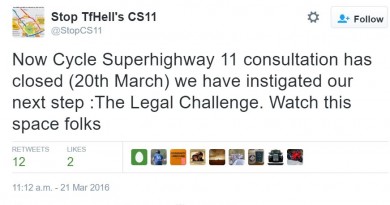Bike share a big catalyst for renewed cycling interest, finds CoMoUK
CoMoUK’s fifth annual bike share report has found bike share to be a significant catalyst for people’s renewed interest in cycling, with 55% of users starting cycling again after using schemes.
Up from 44% in last year’s study, the rising tide comes in tandem with greater availability of such schemes. 29% of those who responded told CoMo that they had not cycled in five years and sometimes more.
Year-on-year, 47% more cycling journeys were tallied between March of 2020 and 2021 over the prior count.
Usage of bike share schemes was for 29% of participants an alternative to pubic transport usage during the pandemic and so in theory is generating new cyclists who had not previously cycled for transport. 33% of users went on to say bike share had impacted on their car reliance, which a separate study published this week shows is rising in tandem.
 Encouragingly, bike share seems to display a much more balanced gender make up than cycling generally manages. In the most recent sample 44% of users were female, 53% were male and the remainder were non-binary/prefer not to say. This finding has been observed before.
Encouragingly, bike share seems to display a much more balanced gender make up than cycling generally manages. In the most recent sample 44% of users were female, 53% were male and the remainder were non-binary/prefer not to say. This finding has been observed before.
The health benefits of a renewed interest in cycling were most commonly referenced by the survey’s respondents, with 55% pleased with physical health benefits and 32% enjoying the mental health benefits of active transport.
In Scotland the results were generally similar with 59% of respondents telling the researchers they had been prompted to begin cycling again. Likewise, 66% reported feeling health benefits physically and 41% mentally. 29% took to bike share as a direct public transport substitute.
In an interesting demonstration of how incentivising use can pay dividends free trips and discounted passes have been offered in both Edinburgh and Glasgow, funded by Transport Scotland.
These subsidies saw an 88% uplift in new users to schemes in Glasgow and a 64% boost to Edinburgh’s numbers from June to September 2020, a period where the UK was largely out of lockdown measures.



